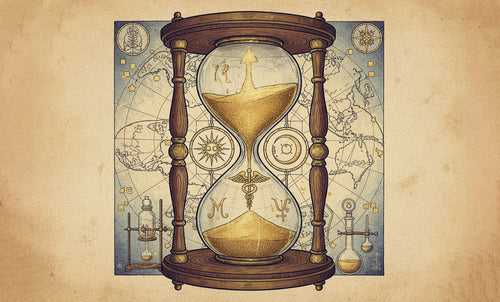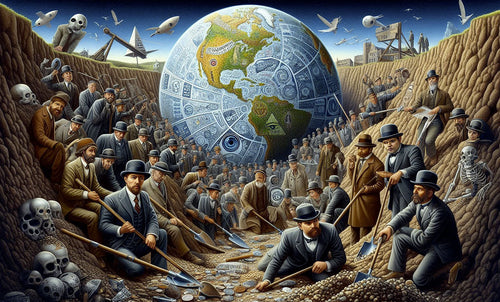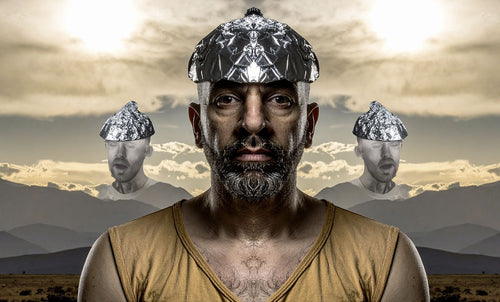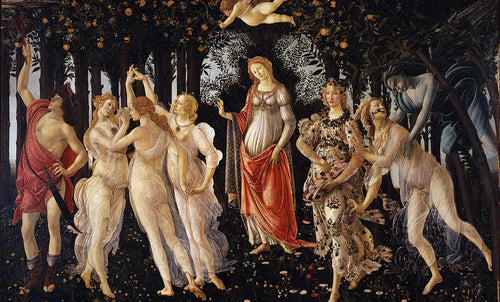
God is a Word, clarifications and relaunch
Tzur TreviIt is really necessary now to explain better the meaning of the statement God is a verb, which is deliberately unsettling, which has an apparently destructive effect on our traditional mental structures and which can even leave a sense of bewilderment and anguish in someone who is not prepared to approach this hypothesis.
No one here is saying that if you want to continue to think and address the Divine as if it were a subject, infinitely unique and peculiar in its qualities, that is "wrong". It is not, absolutely. Do you want to think of God in relationship with you, with your soul in Lover/Beloved terms, as Rumi did? Very well, if this is the way that fulfills you and puts you on the road to the ultimate meaning of your life and things. Do you need to think of it as a sort of transcendent parent, a Father, a Mother who looks down on you, understands you, supports you, forgives you, grants you grace and tests you to make you grow? Do it, keep thinking so if that is what it takes to put you in the process of becoming and unfolding Creation. Do you need, because of your vibrant ethical sense, to think of him as a final Judge who will give us Perfect and Universal Justice, righting the immense and apparently unpunished wrongs and crowned with scandalous successes that make the life of the just heavy and bitter? If this thought of God as the Judge of truth helps you to continue to be ethical, and compassionate, willing but not repaying evil with evil but retaliating with light for darkness, then so be it. We could go on like this indefinitely.
The possible relationships between God and human beings are ultimately all unique, even if they look alike. There are as many as there are humans. For this reason, in the dialectic between the "One and the Many", which in modern Mysticism we call "the Primary Tension", it is important that God can conjugate himself in the forms that the Many need in order to enter into an understandable, livable and effective relationship with It. But It, in its Essence, can only be One, but not a subject, because this would give it dimensions, a conceptual form that cannot exist at the ultimate level, that ofa sofa. For this reason, given that we use language to think and communicate, the least erroneous thing, if we really want to talk about what God is, which in my opinion is impossible precisely in terms, then we will define it as a verb. A verb if we really want to add something decisive for us (not for God) that we would define as a MUTUALLY INTERACTIVE VERB.
But what does this thing mean? You will shortly see, in the words of Rav David Cooper, that the explanation of the meaning of this expression makes it illuminating and completely understandable. One of the great Jewish mystics, Abraham Abulafia (13th century), said of the one who attained this level of super-conscious awareness of the universal presence and manifestation of divinity, the one that 'Ibn Arabi described and that after him the Sufis called Wahdat al Wujud (Oneness of Being and Unity of Existence): "Now we are no longer separate from our source, and behold, we are the source and we are the source, we are so intimately united with It, that we can in no way be separated from it, for We are It". This is, expressed in other words, exactly what one of the first Sufis said too figuratively to be understood by his contemporaries, Mansur Hallaj who said “I am the Truth”. He was not understood and therefore considered a heretic and was atrociously put to death in the year 922 of this era.
In a beautiful Sufi story a man who constantly cried out to God, but received no answer. After a while the Devil whispered to this man: "How long will you wait for God to answer 'Here I am' to all your pleas?" This insinuation broke the spirit of that man who stopped invoking God. In a dream, however, the man imagined an image of the Divine who asked him why he had stopped in his invocations. The man said that God never answered his call. The wise dream image, which represents God, then said to him: "Have you not realized that your every call Is itself my answer?"
What does it mean? It means that the impulse to call upon God always receives a simultaneous response as it is uttered, for ultimately there is no difference between who calls and what is called.
A famous contemporary rabbi with extensive knowledge of kabbalah, Rabbi David Aaron, expressed himself clearly and very radically in this same sense when speaking of the sense of PRAYER. He asks, why do we pray? Who do we address? The great anthropologist Dumezil was among the first who said that there are only 3 kinds of prayer in all religious cultures:
1) the prayer of Praise;
2) the prayer of Request;
3) Thanksgiving prayer.
Rav Aaron says about the first that God doesn't need anyone from down here to remind him how great, infinite, eternal and omnipotent he is. Ditto for the Request, because there is nothing that we know and of which we think we have an urgent need to move forward in life that God, the one who preserves and supports the life of his Creation, does not already know perfectly. And therefore Thanksgiving is already known to the Divine at the very moment in which wonder, emotion, gratitude burst from our soul at the thought that God has heard us, that God has lovingly remembered us. But then for whom do we pray? Who do we address? Abbi Aaron says: "To Ourselves". We are the ones who need to remind ourselves what place we occupy in the scale of being and who is its origin and why. We are the ones who have to focus on what our essential needs are based on the scale of values that guide us in life's choices. It is we who must learn to be grateful and to perceive the unique value of every precious moment of our time in this form that we call "I".
The famous Hasidic master the Kotzker rebbe, or Menahem Mendel (XIX century), who lived his last twenty years in voluntary isolation, asked one of his students one day: "Where does God dwell?" As the student stumbled in his attempt to answer, the Kotzker rebbe answered his own question: "God resides wherever we let him in!"
Mystics throughout time, in all traditions, have ALL said the same thing. We don't have to seek God because the presence of the Divine permeates all things. If there is a search underway, it is only that of God who seeks himself, if we want to express ourselves in an extreme way of simplifying. For these reasons, the closest we can come to thinking of God is as a PROCESS rather than a SUBJECT. We can think of it as "to be", but be understood as a verb rather than a noun.
Perhaps it would help us to understand it better if we renamed God. We could call it God-ing, i.e. as a process, rather than God, which suggests a noun.
In Italian, I temporarily propose “Esse-ndo” in the sense of “Di-ando” (God-ing), waiting for someone to find a better solution. This idea was developed by Rabbi Zalman Schachter-Shalomi, who explained to us that the type of verb representing "God-ing / Being" is different from the ones we have in our ordinary speech. Most of our verbs are considered transitive, i.e. requiring a direct object, or intransitive, those that do not. It suggests that “Esse-ndo” is a MUTUALLY INTERACTIVE verb, implying AN INTERDEPENDENCE BETWEEN TWO SUBJECTS, each being the object for the other.
Like incarnate human divine sparks we have always been inside the ongoing event, eternally described by the verb “Esse-ndo”, and in this verb the Divine subject who is the object for Man and the Man who it is the object of the Divine subject.
This idea of Schachter-Shalomi, for those familiar with the history of philosophy and modern existentialist Hasidic thought, visibly echoes the idea of the primary relationship between Creator and Creature defined as "I-YOU" by Martin Buber.
For example, "COMMUNICATE" could be an example of a "mutually interactive" verb. If I was speaking to an audience, I might not even be able to communicate. I would be engaged in the act of communication, but if the audience was not attentive and thinking about other things, I would not communicate no matter how much I talk. My verbal communication depends on the existence of a listener; it can't be a one-way street. Other obvious verbs that fall into this category are to love, share, dance, kiss, hug, and so on.
We can refer to God as an interactive verb. He is God-ing, Being-ndo. Also, from this perspective, creation should not be treated as a noun. It too is an interactive verb; it is constantly in creation, it is an unfolding process. Every part of the universe is in dynamic relationship with every other part. In human interactions, such as marriage, one partner is a husband while the other is a wife. The two, in this sense, are one. We normally experience relationships in terms of their component parts; we are wrong, however, when we assume that the parts are separate.
It is important to remember that the concept of God-ing / Being-ndo is a way for us to have a relationship with the Divine. This however should not be confused with a relationship to Ein Sof. Many names of God are included in Ein Sof; God-ing is a noun, a noun that appears to be a verb rather than a noun.
True discovery of the intimacy of our ongoing relationship with the Divine can dramatically change our lives. It often happens spontaneously, without a reason. Some call this experience "GRACE". It comes out of nowhere. We are sitting on the beach, walking in the woods, caring for someone who is dying, even driving on the highway and suddenly we are overcome by a strange light that penetrates our consciousness and we are no longer the same. We read accounts of such transformations and conversion experiences that changed the world.
Occasionally, individuals turn to a spiritual life as a result of such experiences. However, MOST PEOPLE WHO ENGAGE IN AN INNER JOURNEY DO SO BECAUSE THEY WISH TO CONNECT WITH TRUTH AND MEANING. This commitment usually involves undertaking a variety of practices that become part of one's daily life. They may include MEDITATION, PRAYER, MOVEMENT, DIET, SELF-MONITORING, ISOLATION PERIODS, MANTRAS, SERVICE, ACTS OF LOVING KINDNESS AND OTHER TIME-TESTED TECHNIQUES TO ALTER ORDINARY CONSCIOUSNESS and allow us to connect with the super-conscious dimension of Being-endo that is unfolding everywhere, even in us who are totally part of it.
Eventually, when the practitioner's priorities are clear, the inner light of awareness slowly illuminates and his or her perception of reality changes constantly. On the spiritual path, either through a brilliant flash of insight, or in the slow and steady progress of continuous practice, we gain wisdom. It is not intellectual knowledge, but wisdom - a profound knowledge - inexplicable, indescribable and exquisite beyond imagination. This wisdom is the source of true mystical experience, the driving force of any spiritual quest. It is what sustains us when we are faced with doubts, nourishes us when the world seems bleak, and comforts us when we face the death of loved ones. Without it, where would we turn? What would we be without the greatness and strength, without the energy and light of the unknowable God?
There is no answer to this question; we cannot prove anything about Ein Sof. Rather, it is an inquiry that reflects upon itself. However, when viewed from the perspective of our dynamic relationship with the Divine, it is a self-fulfilling question, because paradoxically the source of the question is the answer it seeks.
"What would I be without God?"
Thanks for your patient attention. I bless you affectionately wishing you the full fulfillment of your lives.
(commentary of excerpts from the introduction of "God is a Verb" translated from the original English by Rav David Cooper by Tzuriel Trevi.)

















































1 comment
oooooooooooo quanto sono felice di poter trovare un po di conforto nel dubbio di non essere solo a pensare nel mio essere microscopico a dialogare con …..LA LUCE …..GRAZIE